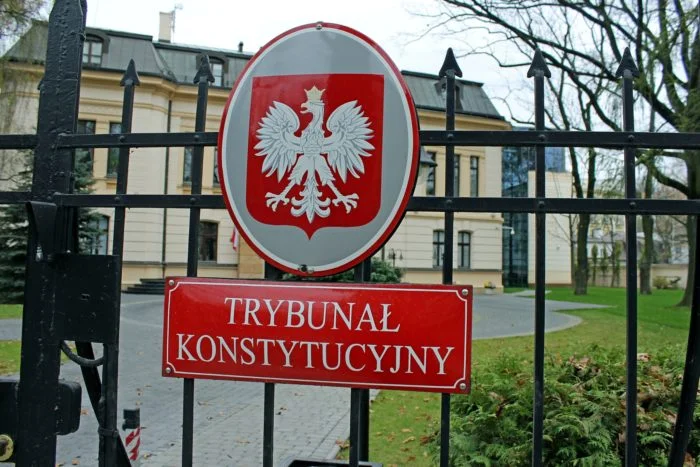Polish populism in times of pandemic

Pandemic has turned our lives upside-down. The social as well as economic consequences are already judged as severe. This post takes a closer look on three major events in Poland that shed a light on how PiS-led government acts in these times of extreme uncertainty. Firstly, the amendments of the election bill – and seeing why the government fights till dawn to make sure the elections take place as planned. Secondly, the EU’s Court of Justice ruling on the Disciplinary Chamber, which has not been loudly publicised in media and claimed unconstitutional by the Prime Minister. Lastly, the parliamentary hearing of the abortion bill (already discussed in detail by Carolin Heilig, here just referred briefly) as an exemplification on how to turn public attention from other burning issues, as the anti-crisis shield package. The drawn conclusion? In the short-term, this crisis makes it easier for the leader of Law and Justice Party, Jaroslaw Kaczynski to proceed with heavy-handed leadership, but without mitigating long-term economic consequences, even PiS support may crumble.
Poland – Laws, Little Justice
The Polish government managed to promptly impose advised restrictions, however, politically it attempts to proceed with business as usual. It has also continued the PiS-introduced tradition of meeting and passing bills at night. Some of the opposition members have already named these sessions ‘a by-pass of public scrutiny’. More visible to the public eye was the gathering of top officials for the 10th anniversary commemoration of the Smolensk air disaster, which has taken place despite a public outcry. According to the Rzeczpospolita, a daily, 66% of respondents reflected negatively on the commemoration during the pandemic. The opposition’s boycott of the upcoming presidential elections, which included resignation of the coalition ally, the Deputy Prime Minister Jaroslaw Gowin, did not alter the political calendar much. The government has arranged postal voting, which technically possible, yet historically there is no institutional memory of nation-wide proceedings in such manner. Experts worry, the forge of poll cards is drastically more likely as providing a firewall against fraudsters, in the current circumstance, is tremendously difficult. Moreover, two other problematic consequences arise. Firstly, Polish diaspora will not be legally allowed to vote, what seems like an electoral shot in the knee for the incumbent president, who is strongly supported particularly by the US-based compatriots. Secondly, as the poll cards will be delivered to all the nationally resident citizens eligible to vote, that raises the question of those who will not cast the ballot. According to the electoral law, destroying a poll card (what would include not returning a filled-in card) is a civil offence punishable to maximum three years in prison. These individuals who will not return the poll card, are potentially faced with such a charge. Legally, such measure makes those who otherwise would not cast a vote, feel obliged to do so.
Politicians spare none of grand words of support for the doctors and health-care staff, which is always heart-warming, yet knowing that the parliamentarians have a separate healthcare system, which is paid by the taxpayers money, should leave us little dubious about singularity of the welfare standards. Moreover, according to the recent Newsweek’s investigation, PiS MPs have preferential access to the COV-19 tests, which are otherwise unavailable to the general public. All in all, the pandemic bluntly showed that equality has little to do with how the society is left to deal with the crisis.
These aspects become tragically apparent in the election year. Hence, the officeholder party seems strongly motivated to proceed with the elections as long as it holds the cards. Losing the puppet president, the signature holder for Law and Justice’s legal conundrums, would not be preferable, given that the party has already lost the higher chamber (Senat) majority during the parliamentary elections last year. Would the pandemic prolong, the government’s probability of miscalculating its crisis policy drastically increases. Already now, the incumbent ministers are discouraged from commenting on the situation in hospitals, and there is rather a dubious methodology for counting the infections – making sure that the party’s support would not dwindle.
Judiciary nightmare continued
The Court of Justice of the EU (CURIA) has requested an immediate suspension (official communique here) of the Polish Supreme Court’s Disciplinary Chamber (DC) on the 8th of April. In the following month, Poland has to comply with an effective freeze of the DC, and in case there will be little evidence of such compliance, the country may face financial fines. Prime Minister Mateusz Morawiecki, has required the Polish Constitutional Tribunal (already heavily politicised body and a bone of contention with the opposition) to provide further details on if CURIA has any jurisdiction in the matter. The president of IUSTITIA (Association of Polish Judges), has welcomed the judgement as a necessary step which ‘clearly prohibits the Polish government to illegally repress judges, by suspending the so-called Disciplinary Chamber [but also seeks to stop] the abuse and arbitrary recognition [of judges] election validity’(Source). The DC’s spokesperson, Piotr Falkowski issued a comment stating that the verdict is not directly applicable to the DC, it concerns the government of Poland, and as long as the government is not stating otherwise, the Chamber will continue on its daily activity.

The situation seems a continuation of the deterioration of the rule of law in Poland. However, what is particularly distressing now is that due to the ongoing pandemic, there is no feasible way for the public to acknowledge these developments. That is, essentially individuals are unable to project their discontent on the streets, as it has been the case previously. Current restrictions open the window for passing laws which otherwise would ignite massive street protests.
SMEs: On the path towards extinction?
There is no doubt that the economy all around the globe is hit hard, and the current climate brings more resemblance to an apocalyptic gameplay, than what we used to see as daily normality. The first economic consequence for businesses is an instant loss of liquidity. That makes a strong call for debt-arrangements, particularly for these small businesses which did not acquire a substantial ‘financial pillow’ for the worse hour. Fairly enough, not that one could expect such a drastic and abrupt distortion as COVID-19 has caused, that is why it seems only natural for the governments to proceed with a financial buffer to keep the businesses afloat.
Poland’s current direction seems to head that way, the government has just pushed through a ‘anti-crisis shield’ law (Dziennik Ustaw 31 marca br. pod poz. 568), which aims to primarily assist the SMEs. At the surface, the anti-crisis shield sounds promising, set to provide 9% of total GDP ($52bn) as a liquidity lifeline to businesses without ownership swap, as it had been during the 2008 with state-bail out provisions[1]. The money is to prevent businesses from laying off personnel, postponing fiscal obligations, primarily aiming to quickly kick-back the economy after the restrictions are lifted.
Yet, over the long term the package seems to fall short. Economists underlined, that two thirds of the total package comes not in cash, but rather from the loan arrangements with the Polish Central Bank, that is the targeted longer-term refinancing operations (TLTRO) — which are not reaching the businesses directly and are also not an instant cash provision measure. According to Adam Czerniak, the anti-crisis shield seems as a short-term fix, if the crisis is to prolong, businesses would need a solid lifeline that would include deterring the fiscal obligations, providing instant liquidity for wages, and as little as possible bureaucratic burden. Crucially for this package to work, the timing is critical. Providing liquidity has to be as automatic as possible. Despite Poland’s strong macroeconomic stance, a relatively small public debt comparing to other European countries, SMEs may not be able to benefit timely from the proposed rescue package and the economy will suffocate on the government’s watch. That is particularly distressing, as other markets, for Poland its major export orientation the German Federation, are crumbling in parallel.
The abortion bill: Is the timing right?
The government’s prioritisation of what takes the precedence seems surprising. The parliament’s latest hearing concerned the Godek’s Project. The pro-life activist, Kaja Godek, mother of two (among one physically impaired child), has drafted a novelisation of the abortion law. The timing for Sejm to be occupied with such a drastically controversial amendment, which has historically been always divisive, could not be more unfortunate. The feminist movements launched a car-protest in all the major cities. Some protesters were fined for not complying with the current social-isolation requirements. More safely, other individuals manifested their personal views through social media. At the time of writing, the project is to be considered during this week’s parliamentary session.
Some commentators see the abortion issue as a smoke and mirrors for the anti-crisis shield shortcomings. It is meant to occupy the public attention with other issues than the rapidly contracting economy. According to the current presidential candidate, Szymon Hołownia, there is little chance for us to ever see any agreement on the question of abortion in the country. That is why, this project is not meant to find a ‘unifying common denominator’, it rather serves as an extremely effective distraction from currently burning matters. Hołownia states clearly that instead of discussing how to effectively assist the frontline, as doctors and nurses, political debate retreated to social stigmatization.
Pandemic and the rule of law – monetising on isolation
The primary concern of many commentators is the trade-off between saving lives and dooming the economy, which should not be a sole polarity of the current situation. The long-term effects are yet to be judged, however public expectations for the government to deliver shall not directly translate to state interventionism and agency politicisation which after the pandemic dust settles, is institutionally difficult to retract.
So far, Kaczynski seem to take better of these uncertain times. This crisis calls for strong leadership and justifies the necessary restriction of all but essential social activity. Kaczynski, despite the severe social distancing requirements, celebrates in the open the Smolensk air disaster commemoration with his close political allies, showcasing double standards. Parliament’s occupation with the abortion issue essentially dismantles already precarious social balance. It also seems to redirect the public attention from the gloom economic forecasts. The pandemic equally distorts the work of democratic stimuli, as NGOs and civil society organisations from taking a stance. Such circumstance may invite passing laws which otherwise would have been a subject of intense public scrutiny.